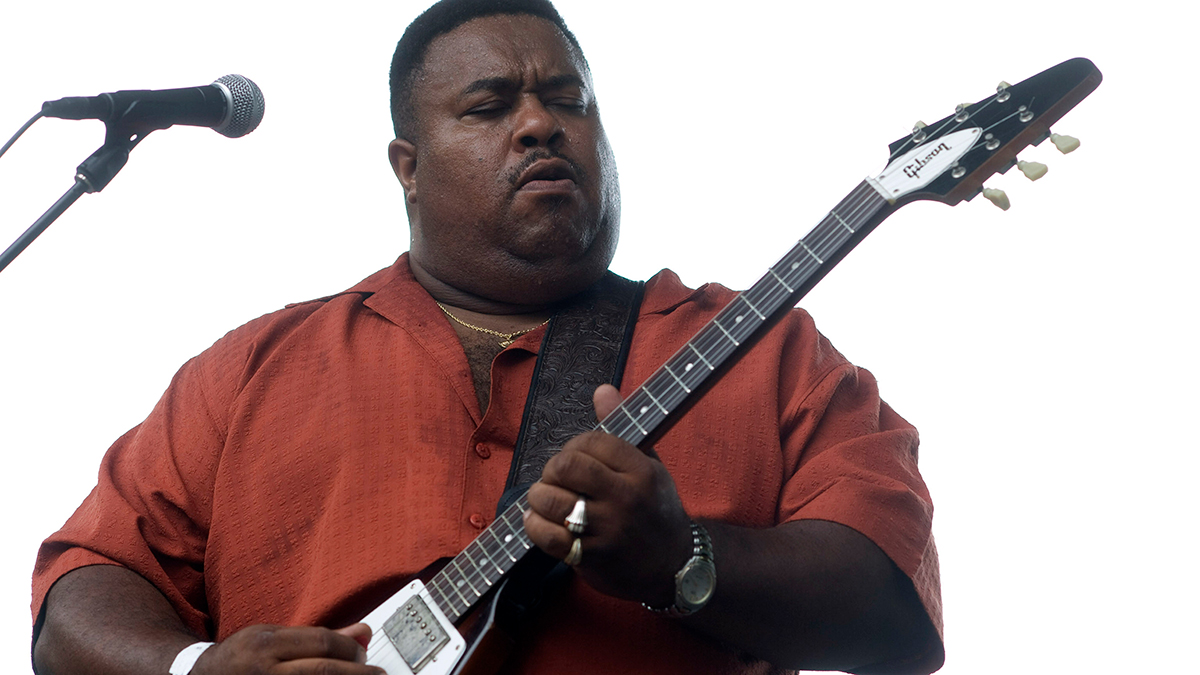Best ukuleles 2025: Acoustic and electric ukes for all budgets and playing styles
Get started with our pick of the best ukes from Mahalo, Martin and Cordoba, plus a cool Fender Jazzmaster ukulele
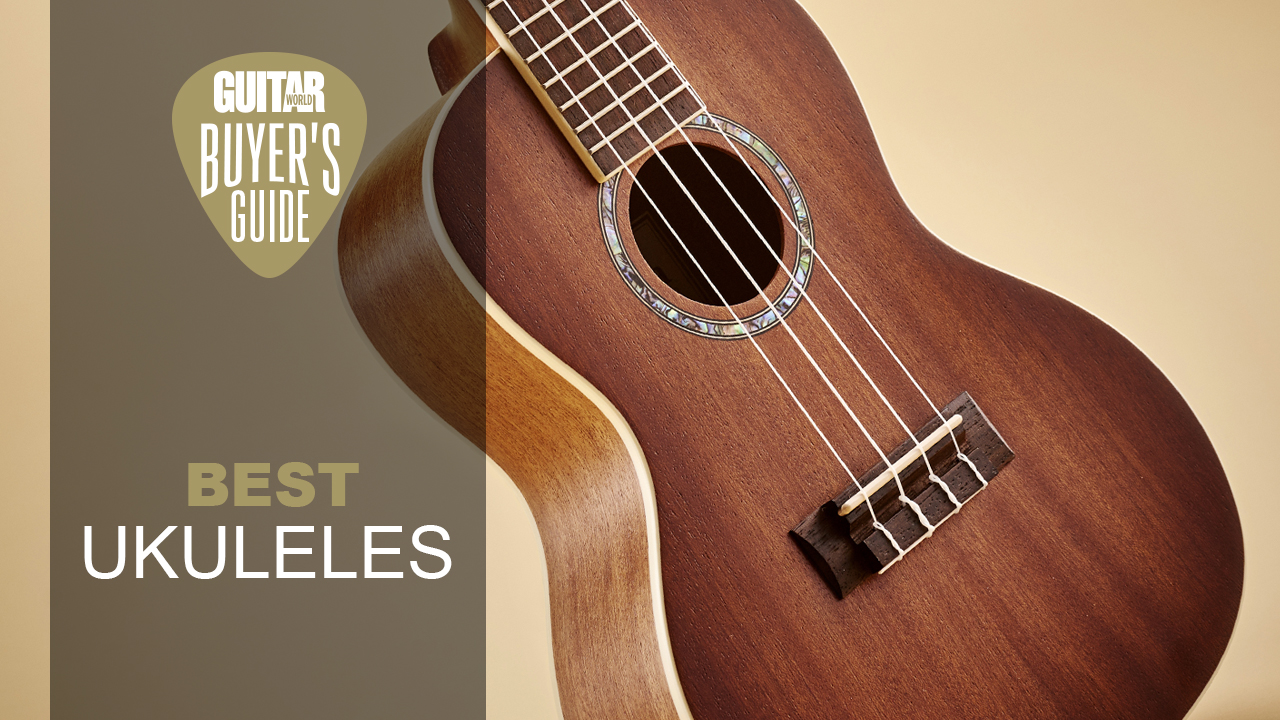
Inexpensive and easy to learn, the best ukuleles are amongst the most popular instruments in the world. Their small size means they're playable for all ages whilst nylon strings are much easier to fret than the steel strings of acoustic and electric guitars. All of this has added up to make the ukulele a go-to for new players, as well as another string in the bow of existing musicians.
The ukulele does have a bit of a reputation for being a toy, and rather unfairly in our opinion. The truth is the ukulele is every bit the proper instrument a guitar or bass guitar is, and it takes some mastery to make a ukulele really sing. There are plenty of pro-level ukuleles available that feature the same expert craftsmanship of acoustic guitars, from the tonewoods and bracing patterns to the hardware.
Whether the ukulele is your first instrument or you're looking to expand your repertoire, we've searched through all the very best ukuleles available today to bring you the best option for each use case. If you're new to the ukulele we've got an extensive FAQs section that has loads of common questions answered by our expert writing team.
Our top picks
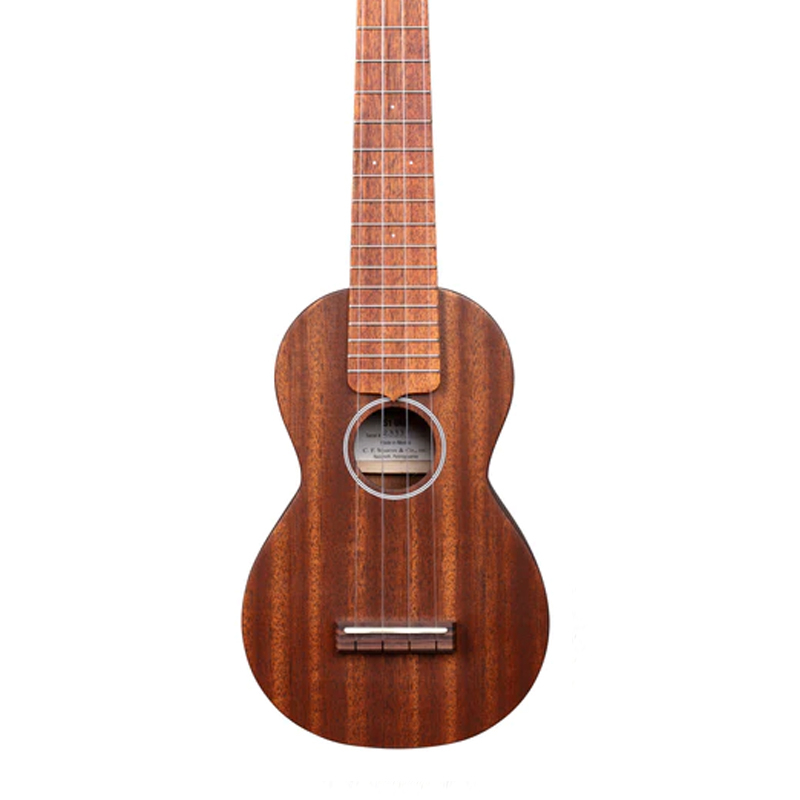
Ukulele's often unfairly have a reputation of not being a serious instrument. The Martin S1 Soprano bucks that trend, delivering an incredible playing and sounding uke that's every bit as harmonically complex as their legendary acoustic guitars.
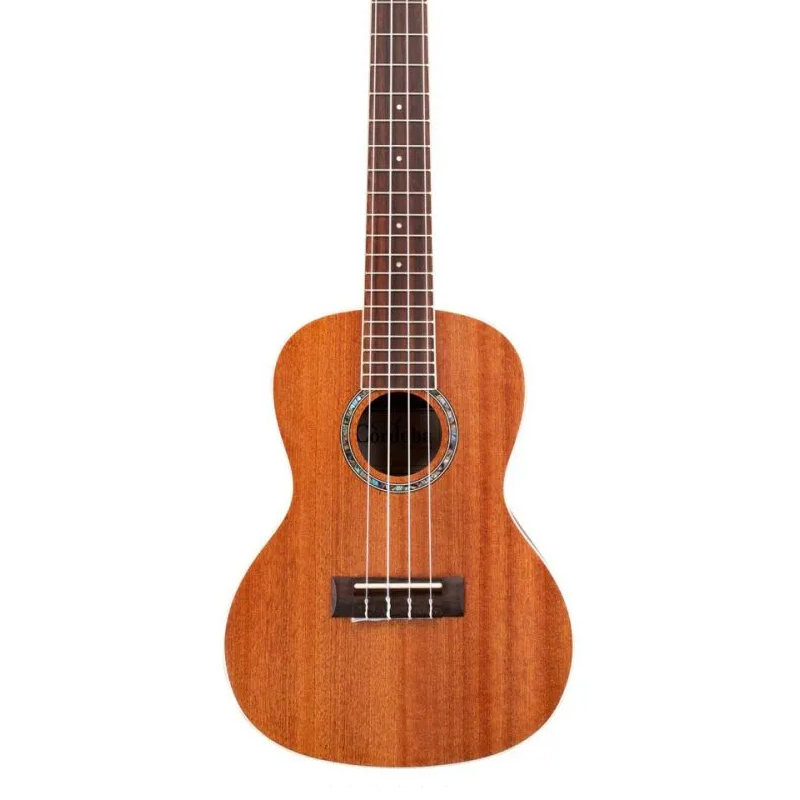
As a step up in quality from the cheaper models, the Cordoba 15CM is a great choice for learning the instrument. The 15CM boasts superb build quality, and the killer tonal combination of a mahogany body, top, and neck with a rosewood fingerboard.
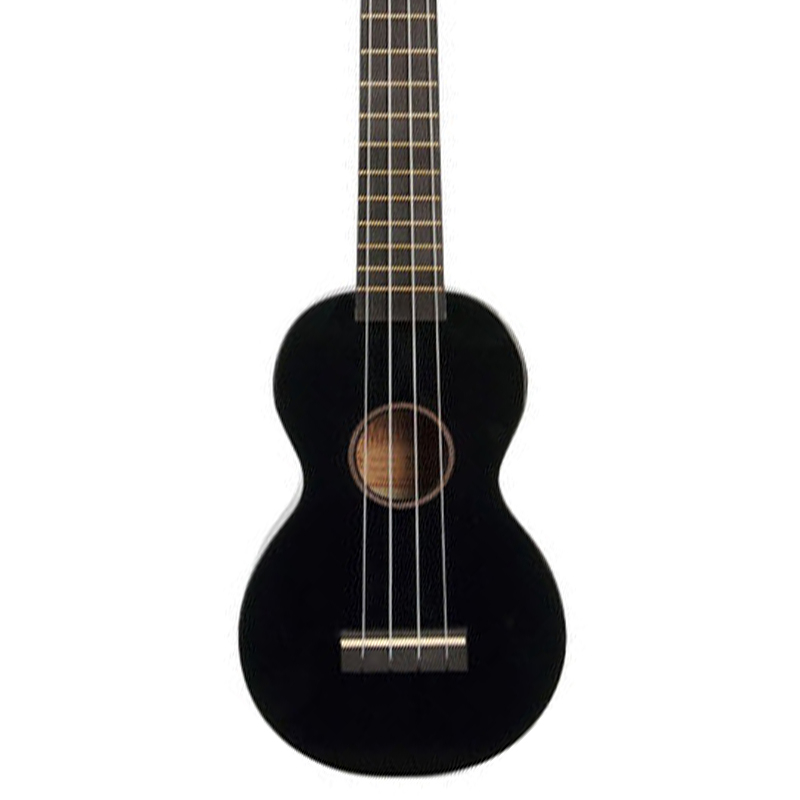
If you want to get into the ukulele without committing huge amounts of money, we'd go for the Mahalo MR1. A simple uke that lets you pick up and play, yet with enough good tone to be satisfying, the MR1 is a great uke that won't cost you the earth.
Best overall
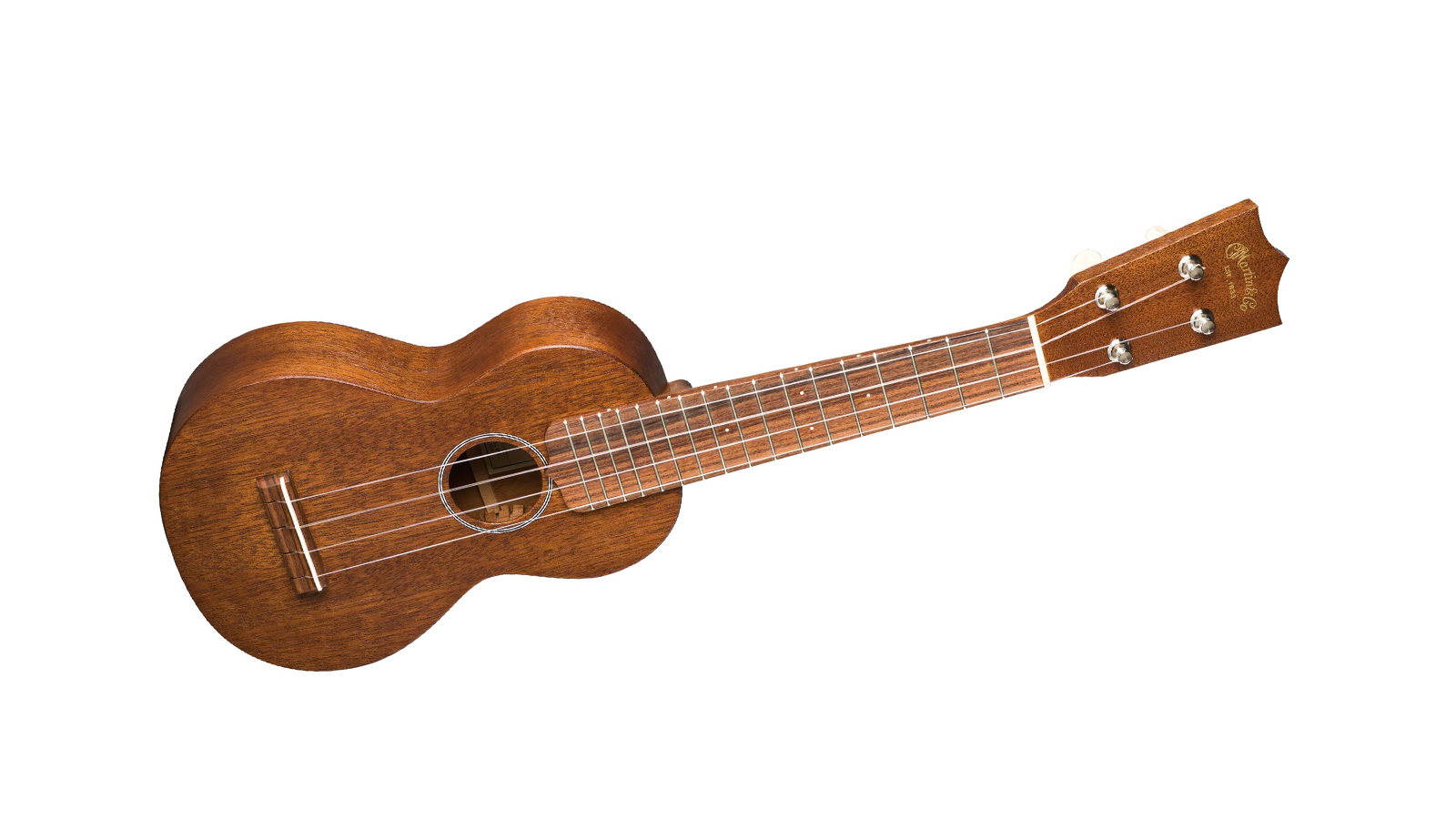
1. Martin S1 Soprano Ukulele
Our expert review:
Specifications
Reasons to buy
Reasons to avoid
Acoustic guitar players will be more than familiar with the Martin brand, so we were understandably excited to see what their flagship soprano ukulele could offer. We were right to be excited, too. While it may cost as much as a mid-range electric, the
Martin S1 delivers tones, projection and build quality a million miles away from what people may think a uke is capable of.
Although there may be flashier options out there, the S1’s beauty lies in its subtlety and Martin’s solid, considered construction. On top of that, accessories are always an appealing addition and you can rely on the Philadelphia giants as the S1 comes with a useful soft padded bag. This is ideal if you’re a frequent member of your local ukulele group.
Sure, with a price tag like that, it’s only likely to appeal to professionals or those with deep pockets, but in the Martin S1, you have a ukulele that will last you a lifetime.
Best for beginners
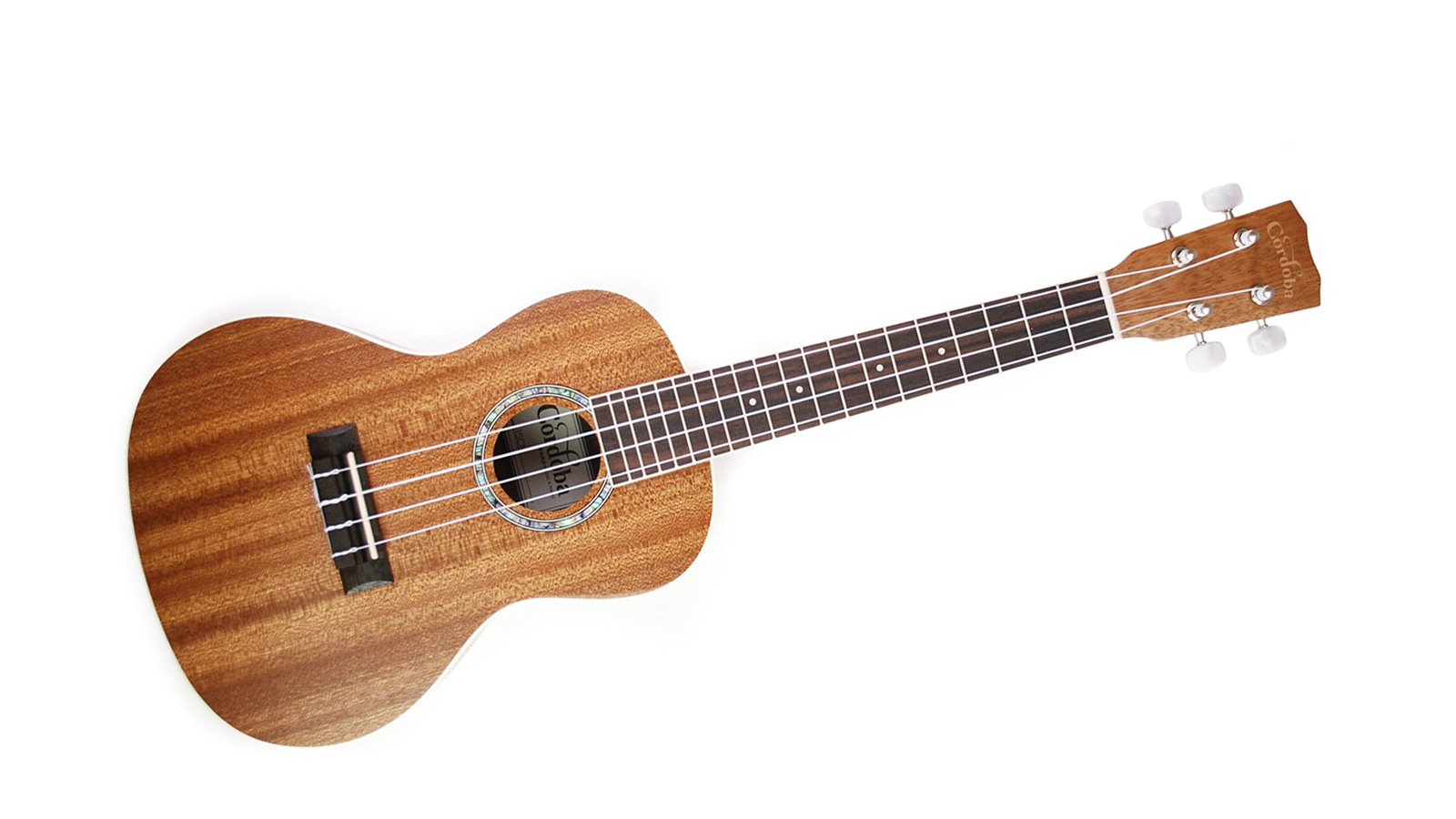
2. Cordoba 15CM Concert Ukulele
Our expert review:
Specifications
Reasons to buy
Reasons to avoid
As a step up in quality from the basic entry-level models, the Cordoba 15CM is a great choice for the beginner player. Packing proper tonewoods into its compact package, it's an inspiring choice that will encourage new players to keep at it.
The chrome pearl button tuning pegs offer sturdy tuning stability and exude a premium feel, you won’t have to worry about constantly reaching for the tuner. The abalone rosette and ivoroid binding are pleasing details and elegant touches, placing this ukulele in a league well above its price tag.
The 14.75” scale length of this concert model makes it slightly larger than a standard soprano, so it’s the ideal step-up for adult learners who’ve outgrown their first uke. One slight gripe we had is the fact that the Cordoba doesn’t come with a gig bag – bear that in mind if you are a traveling ukulele player and are planning on practicing on the move!
Best budget option
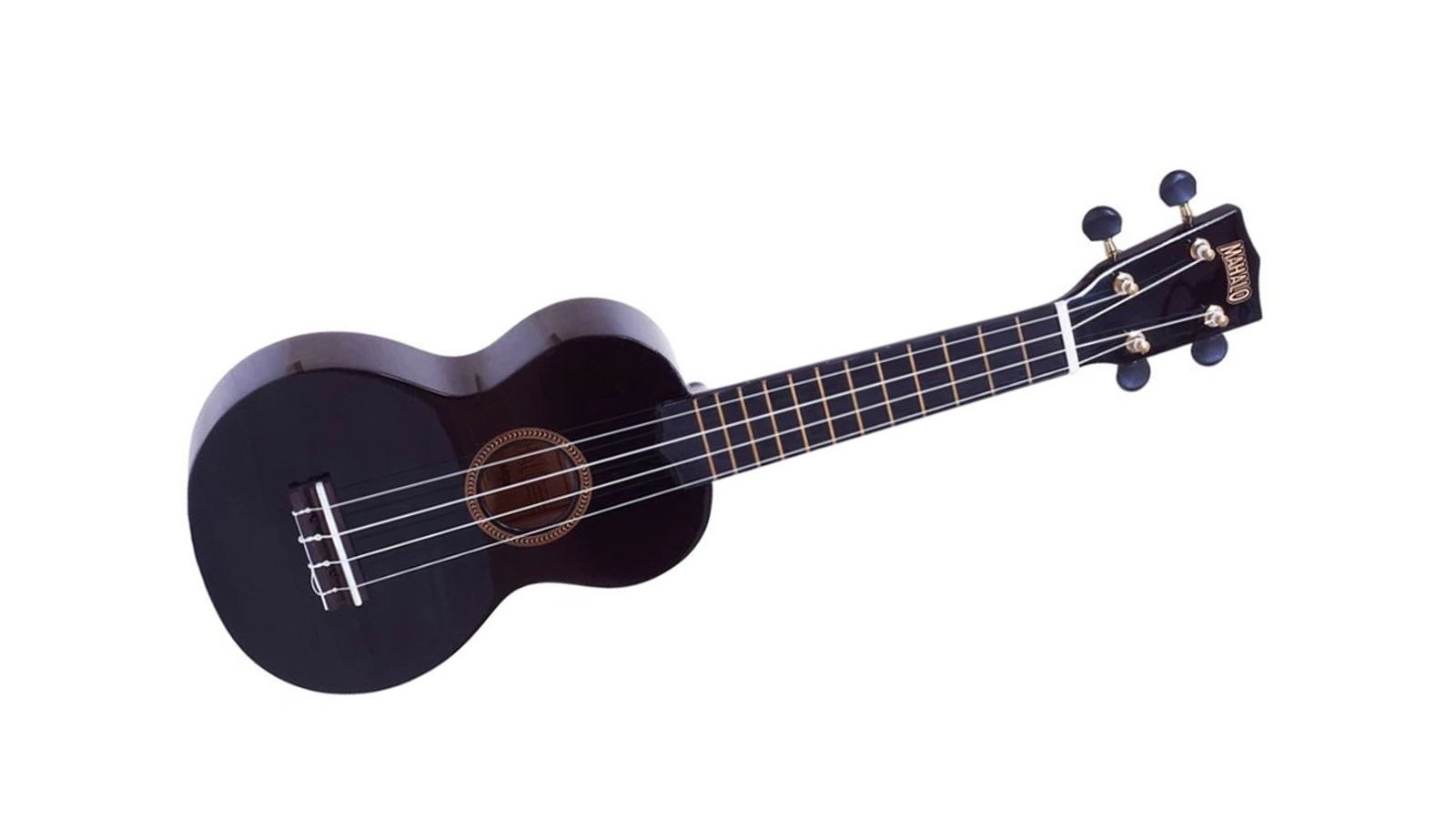
3. Mahalo MR1 Soprano Ukulele
Our expert review:
Specifications
Reasons to buy
Reasons to avoid
It’s hard to look past the Mahalo MR1 as the best ukulele for beginners. As a complete package, including the ukulele and a handy carry bag, this tiny treat offers superb value. Simple enough to pick up and play, yet with more than a few neat touches of its own, the MR1 is the perfect starter uke for anybody of any age.
Available in a selection of bold colors, the Mahalo MR1 has to be worth your consideration. Bonus points are awarded for the Aquila Nylgut strings it comes equipped with, which deliver a superb bright tone. If you were to twist our arm to reveal one minor hang-up we have with the MR1 it would be the tuning pegs. They aren’t the best quality, but this is all relative and expecting miracles from hardware on a $30 uke would be a tad delusional.
That aside, the Mahalo MR1 stakes a very strong claim as the best ukulele for beginners looking to dip their toes in those tropical waters.
Best electric ukulele
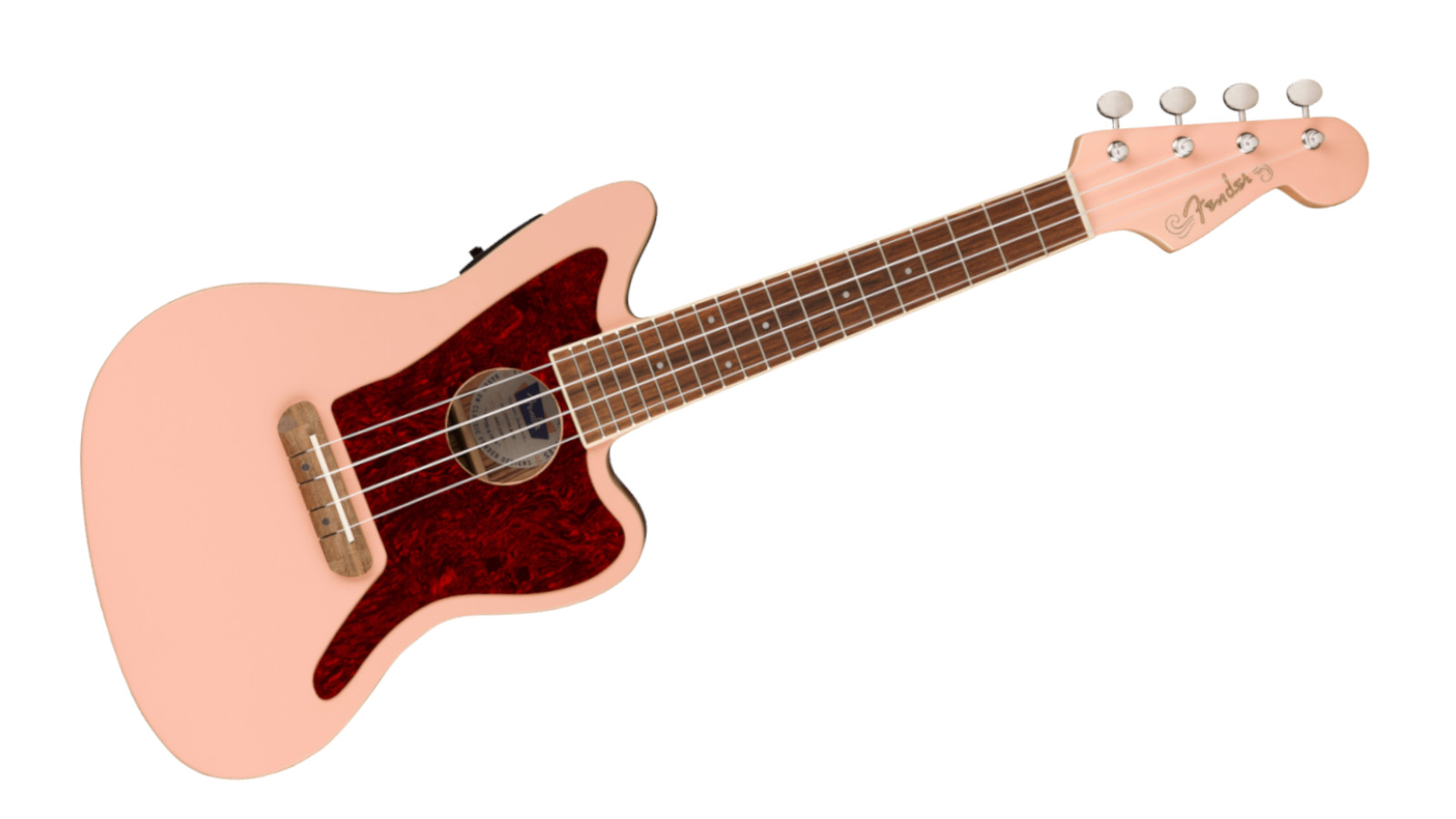
4. Fender Fullerton Jazzmaster Ukulele
Our expert review:
Specifications
Reasons to buy
Reasons to avoid
Fender’s iconic Jazzmaster series has long been the choice of alternative acts, and with the Fender Fullerton Jazzmaster uke, you can get a small slice of the action too. This concert-sized uke features a superb choice of tonewoods for the body and neck, while a Fender-designed preamp makes it perfect for live performance through an amp. The preamp also has an in-built tuner, allowing you to tune on the fly without having to carry an additional clip-on tuner.
Here at Guitar World we’ve always been big fans of a Shell Pink finish and the Fullerton Jazzmaster wears it with pride, it looks fantastic! Don’t worry if you’re a little more subdued in taste as there is a 3-Color Sunburst also on the market. The matching headstock and four-in-line vintage tuning pegs round this little beauty off as a great option for guitarists looking to branch out into the world of ukuleles!
Best for playability
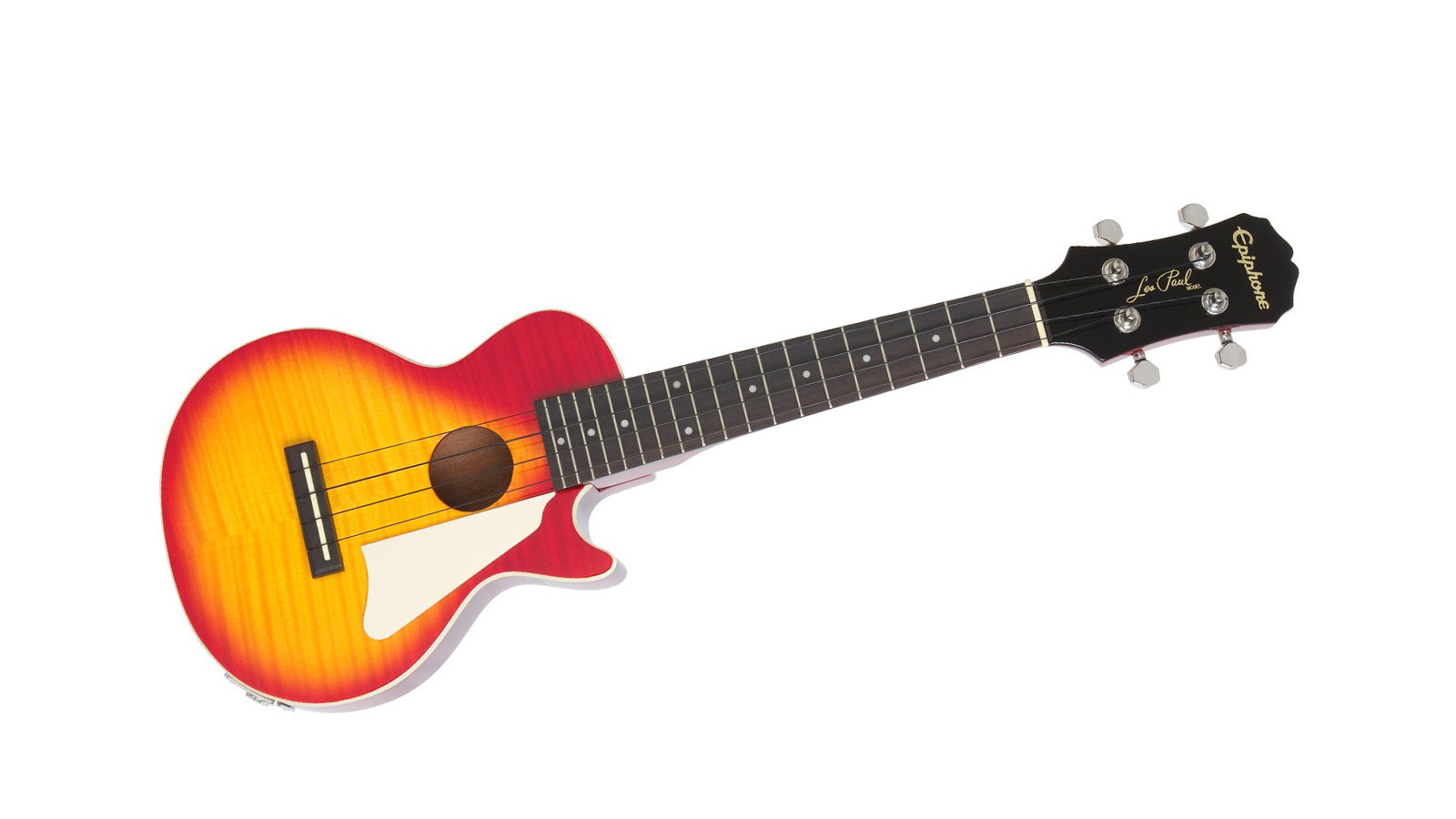
5. Epiphone Les Paul Ukulele
Our expert review:
Specifications
Reasons to buy
Reasons to avoid
The all-mahogany construction of a Gibson Les Paul has gone down in history, so credit to Epiphone for offering ukulele players the chance to get in on the action. The Epiphone Les Paul ukulele is an electro-acoustic tenor voiced ukulele, where the all-mahogany body and neck bring out the potential resonant warmth that a 17” scale length can deliver.
However, Epiphone has gone one step further and provided a stunning AAA flame maple top, catapulting this tenor into rock’n’roll territory that some uke players may not be used to!
So, we know this ukulele looks the part, but how does it sound amplified? Every Les Paul worth their salt has to sound great through an amp and we’re pleased to report that the onboard undersaddle electronics offer some great tones! Other nice touches like the Les Paul-shaped pickguard and headstock signature add up to a sweet little piece of rock history.
Best tenor ukulele
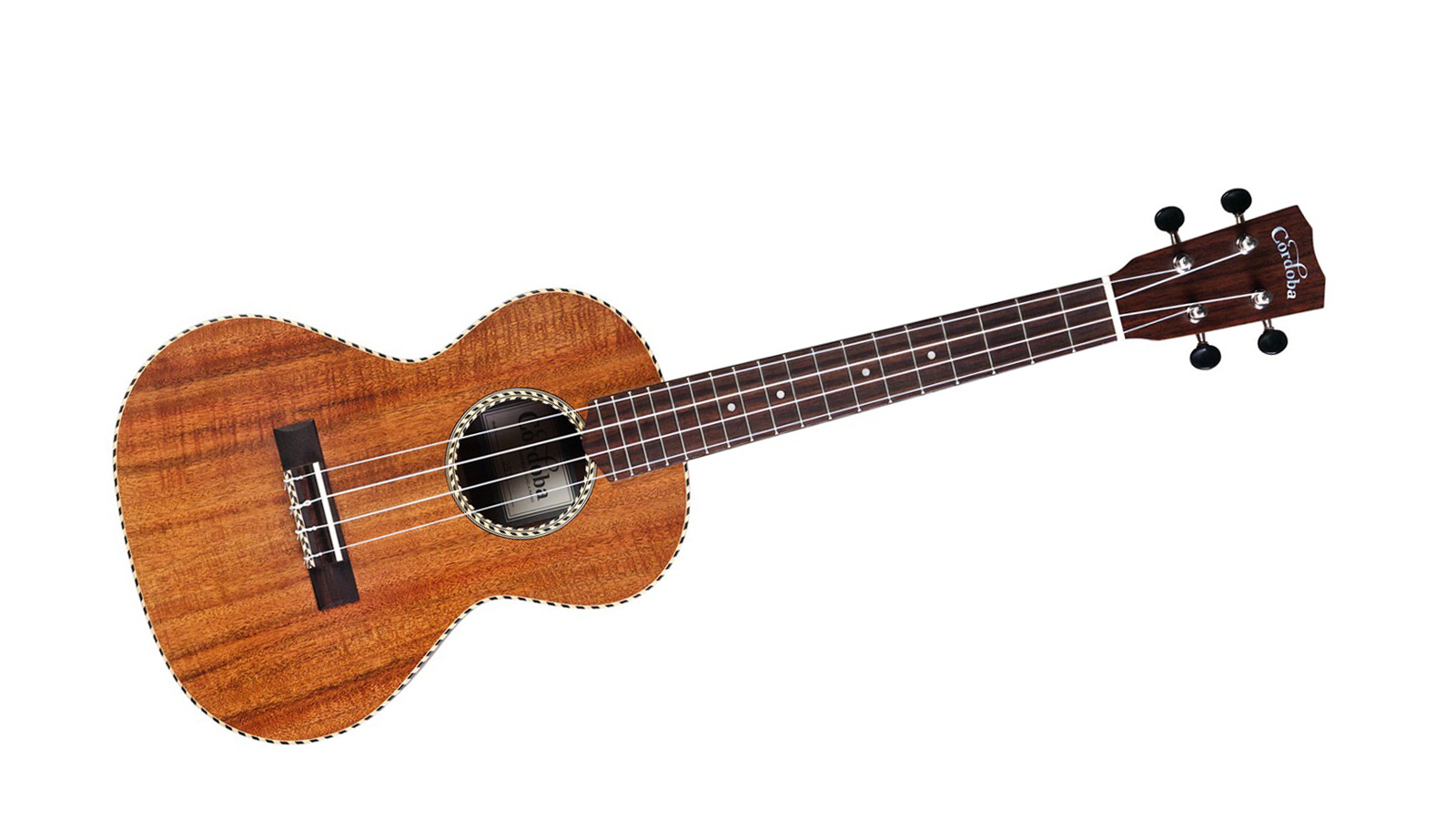
6. Cordoba 25T Tenor Ukulele
Our expert review:
Specifications
Reasons to buy
Reasons to avoid
Tenor ukuleles offer a bridge between soprano, at the small end, and baritones at the other, which are perhaps deemed more specialist. The Cordoba 25T is a sound example of a well-made, wonderfully voiced tenor uke for the more serious player.
Premium features like a solid Acacia top, a herringbone rosette and a bone nut and saddle make for a wonderfully constructed tenor that would suit any intermediate ukulele player’s collection.
The acacia wood brings out the best of the tone, while the active electronics ensure it sounds as good plugged in as it does acoustically. However, the 2-band active EQ on the preamp is slightly limiting, so don’t expect deep tone editing with this little guy. The maple and ebony rope pattern binding may split opinion down the middle but we love it! A unique feature that helps the 25T stand out in a contested market.
More options...
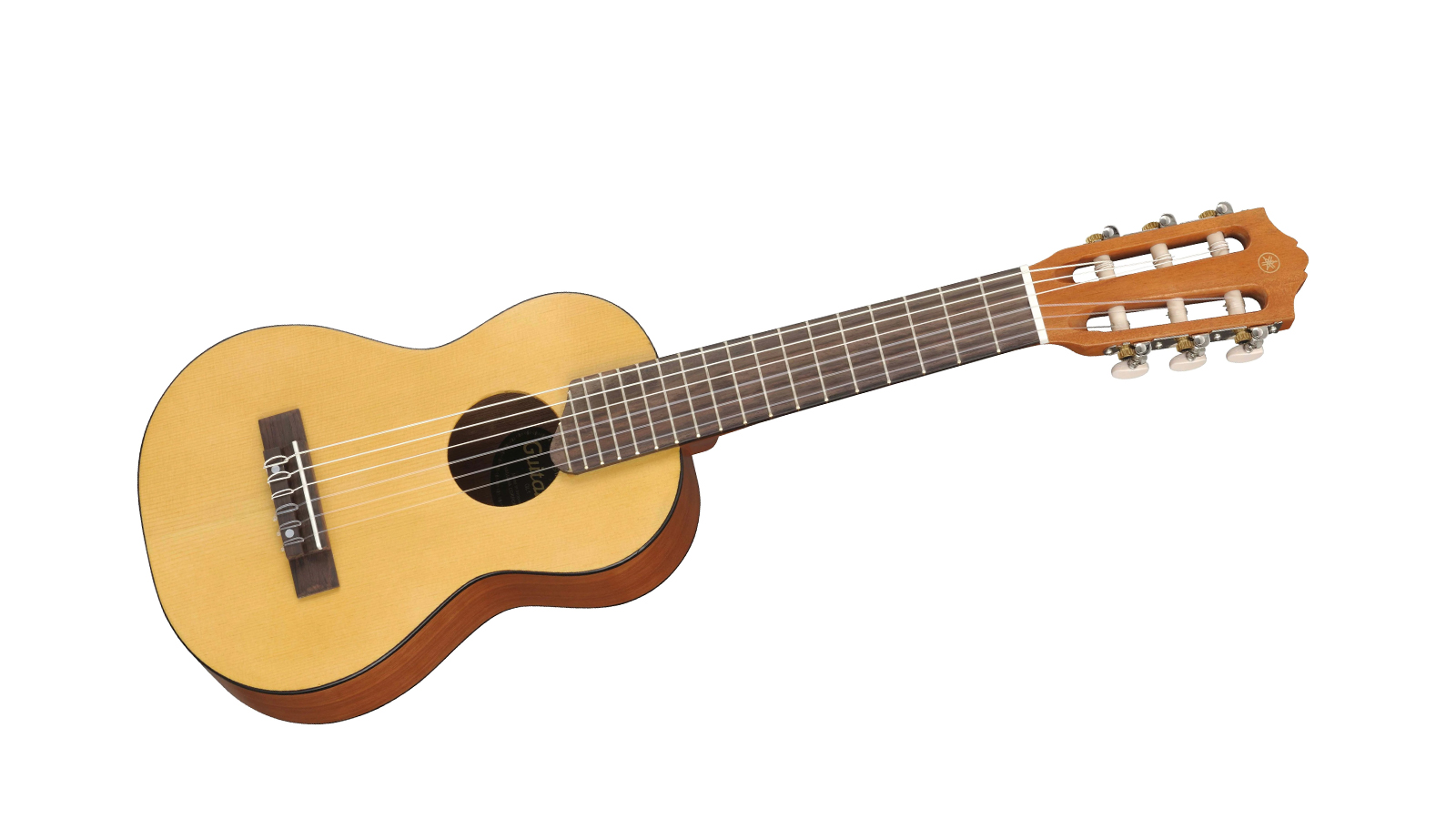
7. Yamaha GL1 Guitalele
Our expert review:
Specifications
Reasons to buy
Reasons to avoid
Just when you thought there couldn’t be any more sub-variants of such a simple instrument, enter Yamaha’s Guitalele. Thankfully, the experience of playing the Yamaha GL1 isn’t as ridiculous as the name suggests; it’s great fun. We loved playing all those tunes we know on the guitar, only at a much higher pitch.
Although the GL1 is transposed to an ‘A’ tuning, the intervals are exactly the same as a guitar, meaning all of those well-known chord shapes are translated exactly. This is a great little instrument to have lying around the house, it’s discreet, packs a resonant punch and is very easy to play.
The well-chosen hardwoods mean the Guitalele has a bright and punchy sound, one that is unique and, although similar to a ukulele, is something individual. The included gig bag is typical fantastic Yamaha quality. All of which makes the Guitalele one of the most enjoyable and portable instruments on our list. Give it a try – if you’re anything like us, you won’t be able to put it down!
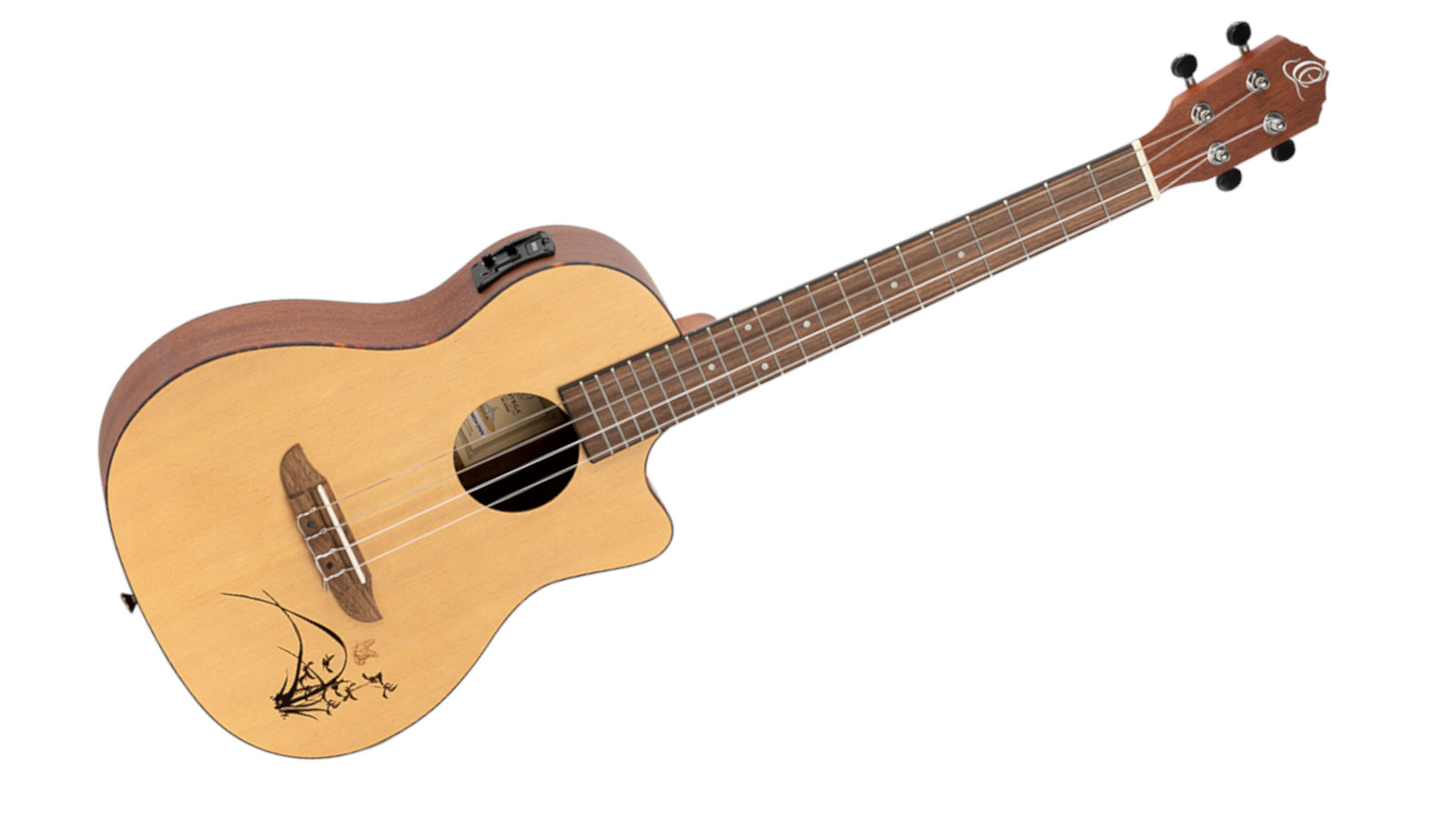
8. Ortega RU5CE-BA Baritone
Our expert review:
Specifications
Reasons to buy
Reasons to avoid
The baritone is the largest of the four main ukulele body sizes. That extra size and surface area help provide a deeper, rounder tone whilst retaining that characteristic ukulele chime. Ortega have been making brilliant ukuleles out of Germany since 2008 and in that relatively short space of time have started distributing worldwide, a testament to their commitment to the humble Hawaiian instrument.
That being said, we’re happy to report that their affordable RU5CE-BA is a fine example of a baritone, with a particularly lovely laser-etched butterfly decal on the surface.
The spruce top of this baritone produces a bright overtone which complements the deeper characteristic of this uke type. That tone is brilliantly amplified thanks to Ortega’s MagusUke preamp/pickup system, which has a pleasingly accurate onboard tuner. The hardware also impresses and the sealed die-cast tuning pegs offer precise tuning and stability, a privilege that can often plague substandard ukuleles.
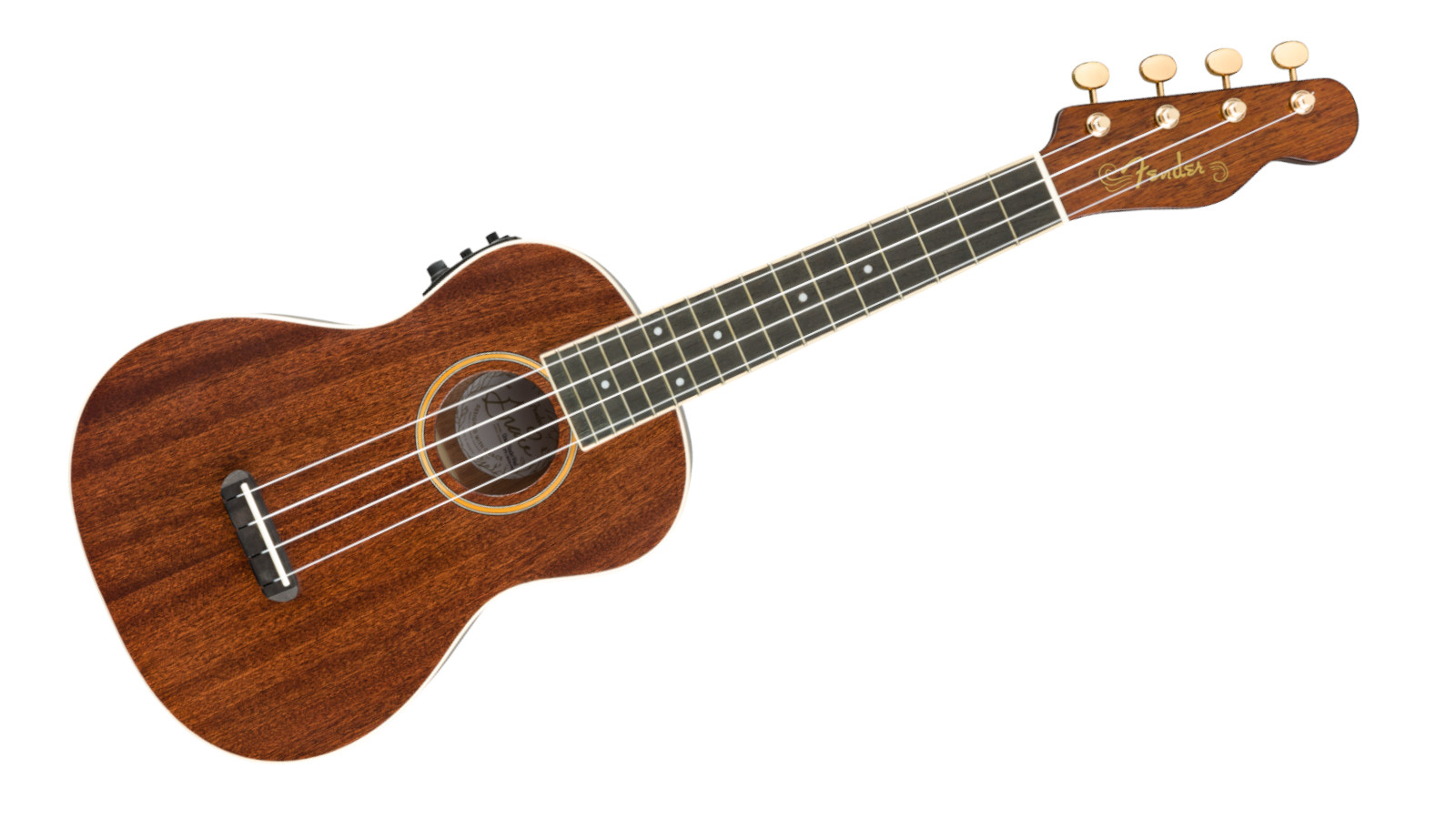
9. Fender Grace Vanderwaal Signature Concert Ukulele
Our expert review:
Specifications
Reasons to buy
Reasons to avoid
Perhaps the biggest ukulele star since George Formby himself, Grace Vanderwaal became the youngest Fender signature artist in history at the age of 13 years old. However, the accolades don’t stop there, Vanderwaal’s was also the first signature ukulele Fender ever released, raising the profile and professional respectability of the humble little instrument.
Vanderwaal’s signature concert ukulele is a fantastic option for the ukulele player who’s looking to perform, due in part to its solid construction, the included durable signature gig bag and dependable golden hardware that will look great on stage.
However, what sets this uke’s performance capabilities apart is the Fishman Kula preamp system. When amplified, the Fishman Kula preamp delivers a rich and authentic tone, which can be further sculpted by the 3-band EQ. At this price point, you’re not going to get better electronics and Grace’s signature should encourage the next generation to play their ukulele hearts out.
FAQs

How do I know what size ukulele to buy?
The ukulele comes in many different shapes and sizes. This significantly affects the tone they produce and the style of music you’d use them for. A soprano, for example, is the typical ‘small’ ukulele you’ll see in classrooms. These usually have 12-15 frets and run around 21” long, and are perfect for young players or people who want a very compact instrument.
Above that, in size order, you have a concert uke. These are arguably the most popular and are typically what most people think of when they picture a ukulele. So if you are in doubt about which to choose, you’re pretty safe with the concert size. Next up is the Tenor uke, which usually comes in around 26 inches - versus the concert's 23 inches. These tend to be more comfortable for taller players, so if you feel like the concert is too cramped, this is the way to go.
Lastly, we have the baritone. These are usually around 30 inches and produces a low, deep tone, perfect for playing with other, smaller ukuleles. However, it’s also worth noting that the baritone is tuned slightly differently to the other “standard” ukes - D/G/B/E - and therefore can be tricky to play at first if you are used to the regular ukulele chord shapes.
How much do ukuleles usually cost?
Like guitars - or any other musical instrument for that matter - Ukuleles come in a variety of different price points. From basic plastic ukes that don’t cost much more than a take-away coffee, to artisan handcrafted instruments that cost thousands.
In terms of how much you should spend, it really boils down to the intent. For very young kids, it’s best to go for a basic $/£30 plastic uke and see if they take to it. Also, if they decide to throw it across the room or drop it, it won’t splinter.
For the more serious beginner player, then around the $/£100 mark is usually a safe bet. This price point allows you to get a well-crafted instrument and is more than serviceable to learn on. For the professional player, you’re looking at spending at least the $/£300 mark.
Is ukulele easier than guitar?
The Ukulele is relatively straightforward to learn and, in fact, a great gateway instrument to get younger kids into other stringed instruments - such as electric guitar, acoustic guitar, or even bass. This is because they will learn the basics of how to fret a note, how to play chords, and how to strum.
What makes the uke easier to play, than say the guitar, is that the reduced amount of strings - 4 instead of 6 - means chords are less complex, while the open tuning means some of these chords only use one finger!
That’s not to say this is just an instrument for kids - far from it. It’s an excellent instrument for established guitar players to experiment with and discover new sounds and sonic possibilities. Look at Eddie Vedder - he discovered the joys of the humble uke and wrote an entire album with one.
Does wood choice change the tone of a ukulele?
Just like acoustic guitars, the type of wood used on a ukulele drastically affects the sound it produces. You are likely to find a uke made of almost any wood you can think of, with a vast array of exotic options out there, from mahogany to koa, spalted maple to rosewood.
A lot of uke manufacturers favor the darker sound of mahogany - especially on soprano-sized instruments - as the more mellow sound of this gorgeous rich hardwood helps balance the bright nature of the small ukulele. In contrast, an all maple instrument will result in a strong attack and a very bright tone - perfect if you are playing with other instruments such as an acoustic guitar.
As to which wood type is best for you, it really comes down to personal preference. Just like choosing any instrument, try some out - or watch some YouTube videos - and see which sound appeals to you the most.
How do you tune a ukulele?
There are many different ways to tune your ukulele, but the most widely used tuning is G, C, E, A. If you are used to the guitar - or any other stringed instrument for that matter - you may find the placement of the high G a little odd, but don’t worry you soon get used to it. This practice of having the high notes as the two outside strings of the instrument is known as re-entrant tuning.
For those with a baritone uke, the most common tuning would be D, G, B, E - a familiar sequence of notes for many guitar players, as it’s the first four strings of their six-string.
The simplest way to tune the uke is actually with a clip-on guitar tuner. All you need to do is attach this handy device to the headstock of the uke, pluck the string you want to tune, and the LED display will tell you if you are sharp or flat - it’s that easy and way more accurate than a set of pitch pipes.
How we test
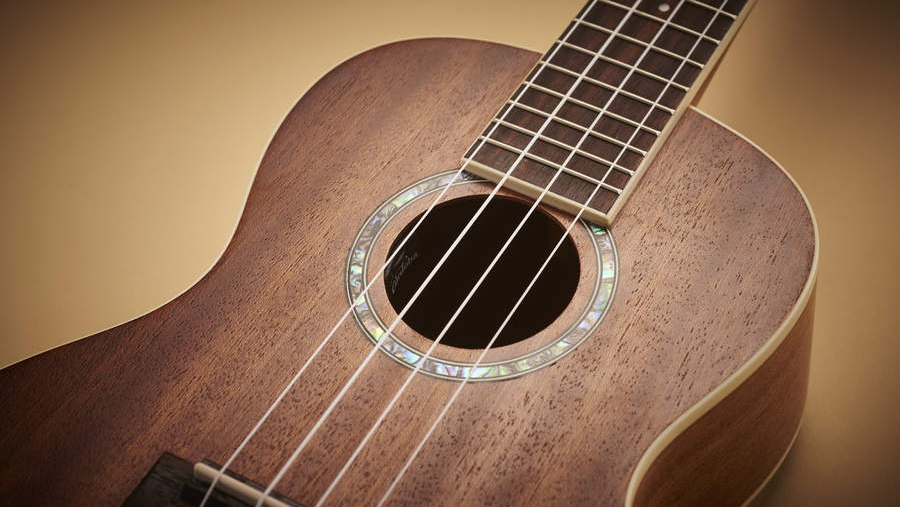
Here at Guitar World, we are experts in our field, with many years of playing, creating and product testing between us. We live and breathe everything guitar gear related, and we draw on this knowledge and experience of using products in live, recording and rehearsal scenarios when selecting the products for our guides.
When choosing what we believe to be the best ukuleles available right now, we combine our hands-on experience, user reviews and testimonies and engage in lengthy discussions with our editorial colleagues to reach a consensus about the top products in any given category.
First and foremost, we are guitarists, and we want other players to find the right product for them. So we take into careful consideration everything from budget to feature set, ease of use and durability to come up with a list of what we can safely say are the best ukuleles on the market right now.
Find out more about how we make our recommendations, how we test each of the products in our buyer's guides and our review policy.
Related buyer's guides
You can trust Guitar World
- Best acoustic guitars for beginners: easy strummers for new players
- Best guitar picks: find the right plectrums for you
- Best guitar tuners: chromatic, polyphonic and strobe types
- Explore some of the best gifts for guitar players
- 10 of the best guitars for kids: acoustic and electric options
- Best acoustic guitars for beginner guitarists to pros
- Best acoustic guitars under $500: great budget acoustics
All the latest guitar news, interviews, lessons, reviews, deals and more, direct to your inbox!
Chris Corfield is a journalist with over 12 years of experience writing for some of the music world's biggest brands including Orange Amplification, MusicRadar, Guitar World, Total Guitar and Dawsons Music. Chris loves getting nerdy about everything from guitar gear and synths, to microphones and music production hardware.
- Matt McCrackenJunior Deals Writer
- Ross Holder
- Daryl RobertsonSenior Deals Writer

